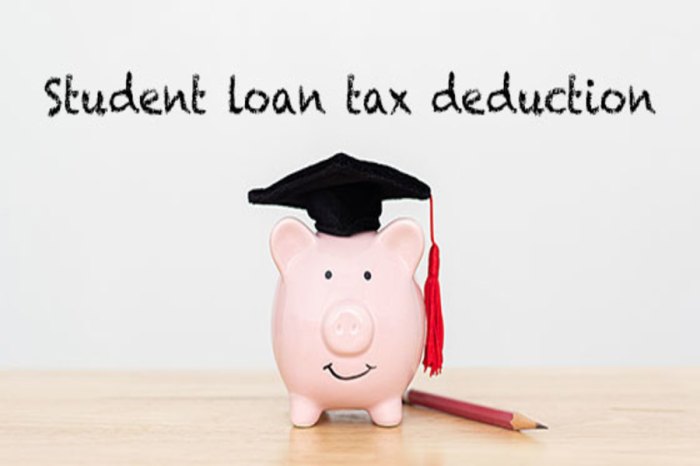
Securing funding for higher education is a crucial step for many aspiring students. Navigating the world of student loans, however, can feel overwhelming. This guide aims to demystify the qualification process, providing clear and concise information on eligibility requirements, necessary documentation, and the various types of loans available. We’ll explore both federal and private loan options, helping you understand what factors influence your approval and how to improve your chances of securing the financial assistance you need.
From understanding credit history’s impact to meeting income and enrollment criteria, we’ll cover all the essential aspects of student loan qualification. We’ll also address common misconceptions and provide practical strategies to enhance your application, ultimately empowering you to make informed decisions about your financial future.
Eligibility Requirements

Securing a student loan involves meeting specific eligibility criteria, which vary depending on the loan type and lender. Understanding these requirements is crucial for a successful application. Generally, eligibility hinges on factors like your educational status, credit history (for private loans), and financial situation.
Federal Student Loan Eligibility Requirements
Federal student loans, offered by the U.S. Department of Education, generally have more lenient eligibility requirements than private loans. These loans are designed to be accessible to a broader range of students. Key factors include demonstrating financial need (for some loan types), maintaining satisfactory academic progress, and being a U.S. citizen or eligible non-citizen.
| Requirement | Description |
|---|---|
| Age | There is no minimum age requirement. However, you must be enrolled or accepted for enrollment in an eligible educational program. |
| Citizenship | You must be a U.S. citizen, U.S. national, or eligible non-citizen. Specific documentation is required to prove eligibility. |
| Enrollment Status | You must be enrolled at least half-time in an eligible degree or certificate program at a participating institution. |
| Credit History | Federal student loans generally do not require a credit check or a good credit history. However, some loan programs may consider creditworthiness as a factor. |
Private Student Loan Eligibility Requirements
Private student loans, offered by banks and other financial institutions, typically have stricter eligibility requirements. Lenders assess your creditworthiness, income, and debt-to-income ratio to determine your eligibility. A co-signer may be required if you lack a strong credit history or sufficient income.
Comparison of Eligibility Requirements Across Lenders
Eligibility requirements for private student loans vary significantly across different lenders. Some lenders may prioritize credit score and income, while others may place more emphasis on your academic record and co-signer’s financial strength. It’s essential to compare offers from multiple lenders to find the most suitable loan based on your individual circumstances. For instance, one lender might require a minimum credit score of 680, while another might accept applicants with lower scores but charge a higher interest rate. Similarly, income requirements and debt-to-income ratios can vary substantially.
Ending Remarks

Successfully navigating the student loan application process requires careful planning and a thorough understanding of the eligibility criteria. By addressing key factors like credit history, income, enrollment status, and required documentation, prospective borrowers can significantly increase their chances of approval. Remember to explore both federal and private loan options, comparing interest rates and repayment plans to find the best fit for your individual circumstances. With careful preparation and a clear understanding of the process, securing the necessary funding for your education is achievable.
FAQ
What happens if I have a poor credit history?
A poor credit history may make it harder to qualify for private student loans or may result in higher interest rates. Federal loans generally have less stringent credit requirements but still require a credit check.
Can I get a student loan if I’m not a US citizen?
Eligibility for federal student loans typically requires US citizenship or permanent residency. Private loan eligibility varies by lender.
What if I’m attending a non-accredited institution?
Federal student loans generally require enrollment at an accredited institution. Private lenders may have different policies.
How long does the application process usually take?
The application process varies depending on the lender and the type of loan. It can range from a few weeks to several months.
What is the difference between a subsidized and unsubsidized federal loan?
With subsidized loans, the government pays the interest while you’re in school (under certain conditions). Unsubsidized loans accrue interest from the time the loan is disbursed.
